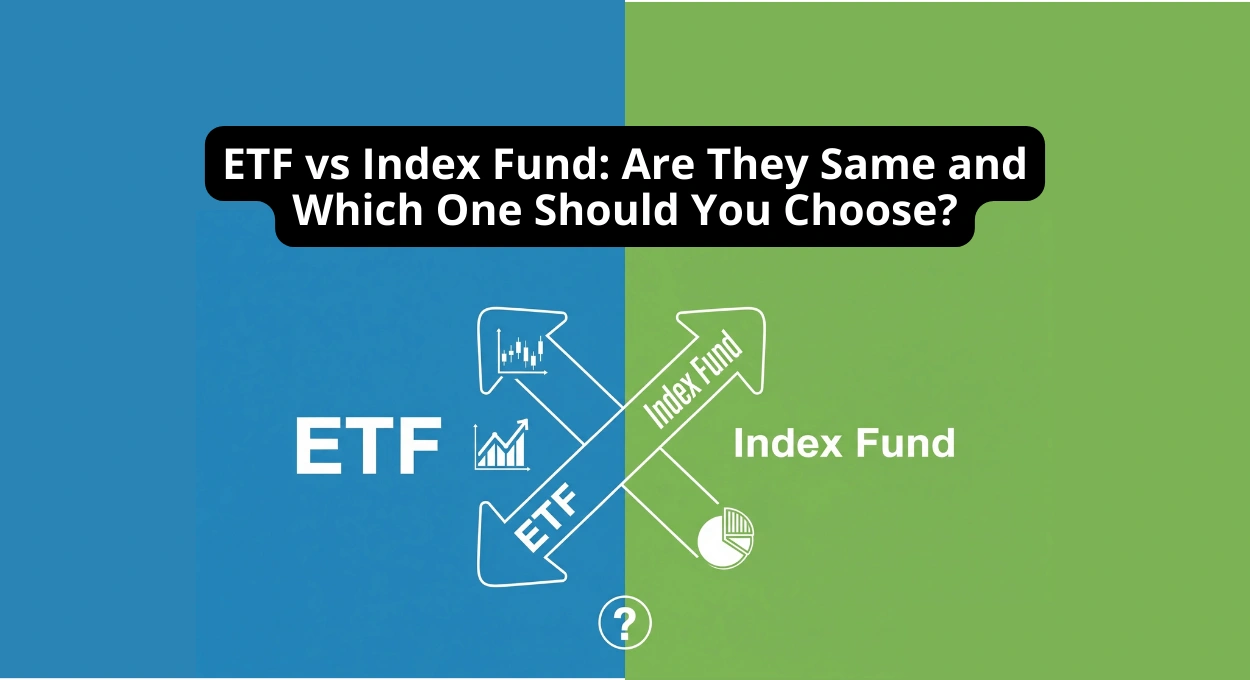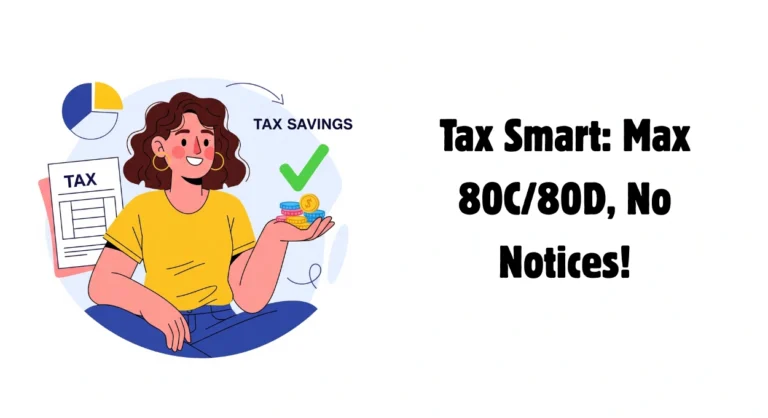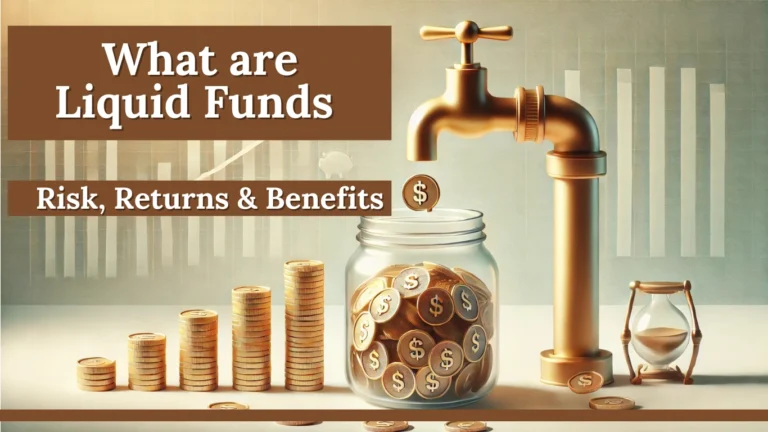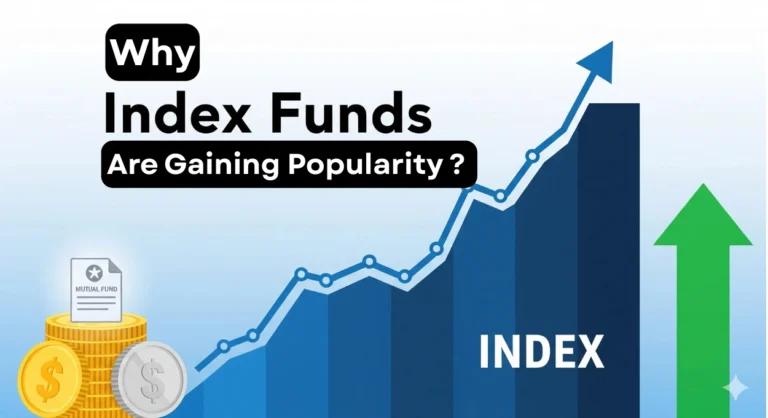ETF vs Index Fund: Are They Same and Which One Should You Choose?
No, ETFs (Exchange-Traded Funds) and Index Funds are not the same, even though both are designed to track a market index and provide low-cost, diversified investing. The key difference lies in their structure and trading style: ETFs trade like stocks on an exchange with intraday price movements, while Index Funds are mutual funds priced once a day at Net Asset Value (NAV). Choosing between them depends on whether you prefer flexibility and tax efficiency (ETFs) or simplicity and hands-off investing (Index Funds).
ETFs vs Index Funds: Core Distinction
At first glance, both investment vehicles aim to replicate the performance of a market index like the S&P 500 or Nifty 50. However, how investors buy, sell, and manage them is what sets them apart.
- ETFs: Bought and sold on exchanges throughout the trading day.
- Index Funds: Bought or redeemed once daily at NAV via mutual fund platforms or AMCs.
This difference in structure makes ETFs more suited to active, cost-conscious investors, while Index Funds appeal to those who value ease and automation.
Also Read :- Why Index Funds Are Gaining Popularity — And Whether They’re Right for You
Key Differences Between ETFs and Index Funds
1. Trading Mechanism
- ETFs: Trade continuously on stock exchanges, just like company shares. Prices fluctuate in real time.
- Index Funds: All purchases and redemptions are processed once a day, after markets close.
If you want intraday trading flexibility, ETFs are better.
2. Access and Accounts
- ETFs: Require a demat and trading account.
- Index Funds: Can be purchased through mutual fund platforms or directly from AMCs, without a demat account.
Beginners often prefer Index Funds for their simplicity.
3. Costs
- ETFs: Usually have lower expense ratios, but investors pay brokerage fees, Securities Transaction Tax (STT), and stamp duty.
- Index Funds: Have slightly higher expense ratios, but no brokerage charges.
ETFs suit frequent traders; Index Funds suit systematic investors.
4. Liquidity and Flexibility
- ETFs: Highly liquid, tradable anytime during market hours. You can also use advanced strategies like stop-loss or limit orders.
- Index Funds: Less liquid, as transactions happen only once daily.
5. Tax Efficiency
- ETFs: More tax-efficient due to “in-kind” redemption, which reduces capital gains distributions.
- Index Funds: May pass on capital gains to investors when the portfolio is rebalanced.
6. Minimum Investment
- ETFs: Can be bought in single units, making them accessible to small investors.
- Index Funds: Typically require a minimum lump sum or SIP investment.
Also Read :- Index Fund Selection Made Simple: Your Guide to Smarter Investing in 2025
ETFs vs Index Funds: Comparison Table
| Feature | ETFs | Index Funds |
|---|---|---|
| Trading | On exchanges, throughout the day | Once daily at NAV |
| Pricing | Real-time, fluctuates | End-of-day NAV |
| Account | Demat & trading account | Mutual fund account |
| Costs | Lower expense ratio + brokerage fees | Slightly higher expense ratio, no brokerage fees |
| Liquidity | High (intraday) | Moderate (end-of-day) |
| Flexibility | Advanced trading options | Simple buy & hold |
| Minimums | Single unit | Fixed minimum or SIP |
| Taxation | More tax-efficient | May incur capital gains |
Similarities: Where They Overlap
Despite these differences, ETFs and Index Funds share common advantages:
- Passive investing: Both simply track an index rather than try to beat it.
- Diversification: Both hold a broad basket of stocks, lowering single-stock risk.
- Low cost: Both are cheaper than actively managed funds.
- Long-term growth: Both are excellent tools for compounding wealth.

Which One Should You Choose?
- Choose ETFs if you:
- Already have a demat and trading account.
- Want the ability to trade intraday.
- Value lower expense ratios and tax efficiency.
- Choose Index Funds if you:
- Prefer simplicity and a hands-off approach.
- Want to invest systematically through SIPs.
- Don’t want to bother with brokerage or intraday market timing.
In summary: ETFs are for flexibility and cost efficiency; Index Funds are for simplicity and automation.
Final Verdict
ETFs and Index Funds are not the same, but both are excellent choices for passive investors. ETFs resemble stocks in trading style, while Index Funds resemble mutual funds in simplicity. The “better” option depends on your investing style: active yet cost-conscious investors lean toward ETFs, while long-term, hands-off investors benefit from Index Funds.
FAQs
1. Are ETFs and Index Funds the same?
No. While both track a market index and offer diversification, ETFs trade like stocks with intraday pricing, while Index Funds are mutual funds priced once daily at NAV.
2. Which is better for beginners: ETF or Index Fund?
Index Funds are often better for beginners due to their simplicity, no need for a demat account, and ease of systematic investments (SIPs).
3. Do ETFs cost less than Index Funds?
Generally yes—ETFs usually have lower expense ratios. However, you may pay brokerage fees and taxes when buying or selling ETFs, unlike Index Funds.
4. Do I need a demat account for both ETFs and Index Funds?
You need a demat and trading account to buy ETFs since they trade on stock exchanges. Index Funds can be bought directly via mutual fund platforms without a demat account.
5. Which is more tax-efficient: ETFs or Index Funds?
ETFs are usually more tax-efficient because of their unique creation/redemption mechanism, which minimizes capital gains distributions compared to Index Funds
Disclaimer : This article is for educational purposes only and should not be considered financial advice. Please consult a qualified advisor before making investment decisions.







